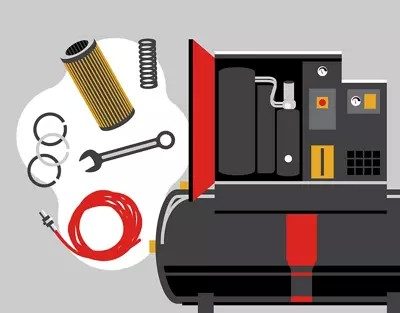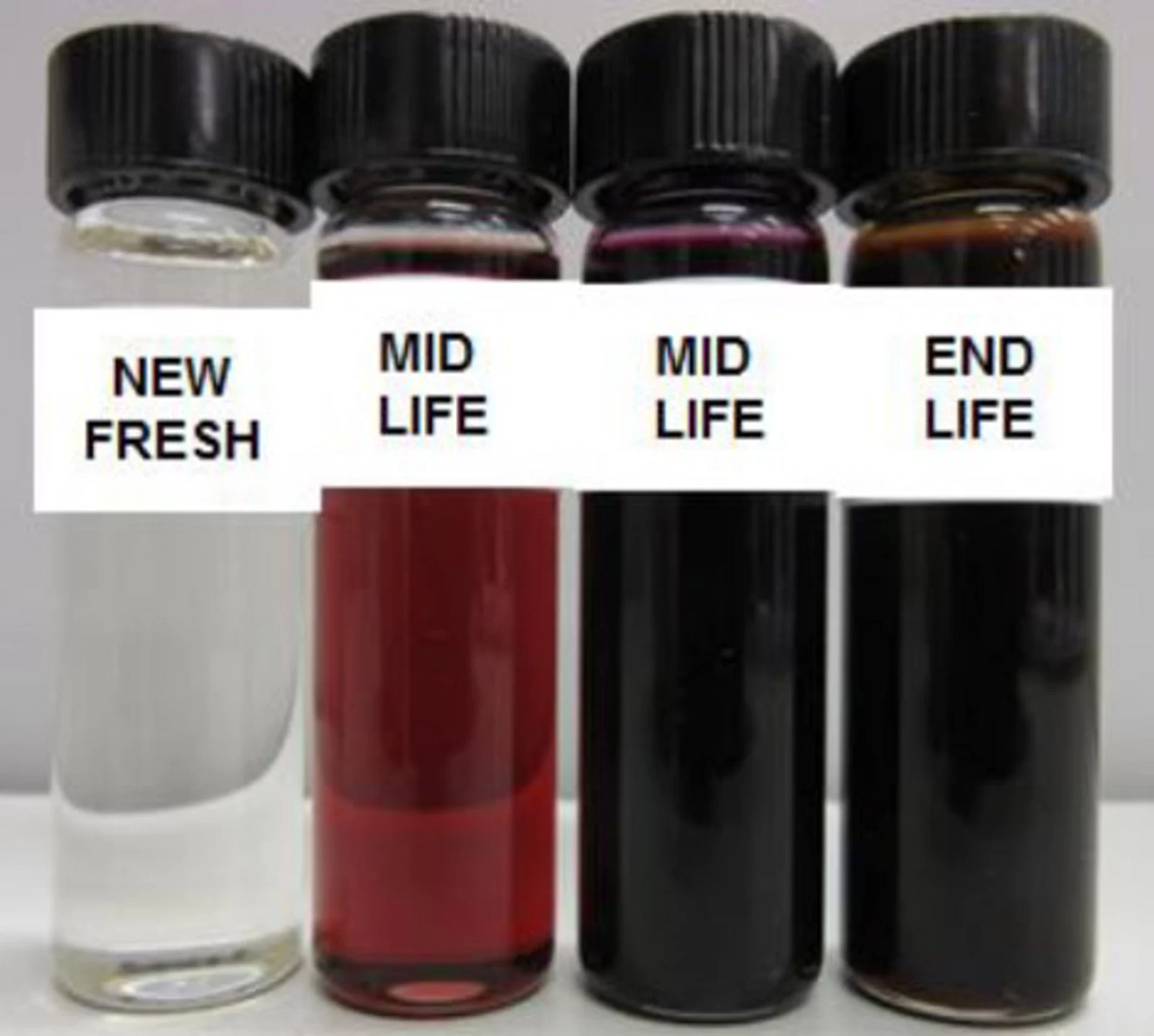Proportioning the Compressed Air Dryer
Trying to figure out which air dryer capacity is best for you? Here are some factors to consider. Read More…
An oil analysis can prevent problems later down the road. It's often been referred to as the blood test for your compressor. Just like a blood test can tell you about your health and early alerts to impending problems, an analysis can do the same for your compressor.
 An
oil analysis is a quick, non-harmful way to check the health of your air compressor by looking at what is in the lubricant. Since your oil
is used for lubrication and cooling, it's a perfect sample to evaluate. By analyzing a sample of used machine oil, you can determine the
amount of contamination, the wear rates and overall condition of your machine. The real benefit of an oil analysis is that it acts as an
early warning system, alerting you to potential problems before the air compressor goes down or has failure. When Chicago Pneumatic runs
an oil analysis on your machine, we are looking for wear metals, contaminants and additives that are present in your lubricant. Below are
examples of those types of elements.
An
oil analysis is a quick, non-harmful way to check the health of your air compressor by looking at what is in the lubricant. Since your oil
is used for lubrication and cooling, it's a perfect sample to evaluate. By analyzing a sample of used machine oil, you can determine the
amount of contamination, the wear rates and overall condition of your machine. The real benefit of an oil analysis is that it acts as an
early warning system, alerting you to potential problems before the air compressor goes down or has failure. When Chicago Pneumatic runs
an oil analysis on your machine, we are looking for wear metals, contaminants and additives that are present in your lubricant. Below are
examples of those types of elements.
Wear Metals: Iron, Chromium, Nickel, Aluminium, Lead, Copper, Tin, Silver, Titanium, Vanadium.
Contaminants: Silicon, Sodium, Potassium
Additives: Boron, Molybdenum, Phosphorus, Zinc, Calcium, Barium, Magnesium, Antimony

An oil analysis report will show a list of all the metals, contaminants and additives mentioned above with an overall number beside each. A lab will generate a report that will scale the level of risks of normal, monitor, abnormal and even critical. Note, one of the most critical roles of a compressor lubricant offers is to provide heat removal in the air end. As the air is compressed, it generates a lot of heat. If this heat is not removed rapidly, the bearings, seals and gears will all fail rapidly. Poor heat removal can be traced to contaminated lubricant or the incorrect lubricant type being used.
 1. Monitor
contamination around the air compressor: Is
your air compressor being stored in a room that you are also doing granite grinding? You wear a mask to protect yourself from breathing in
those contaminants, the air compressor needs to be protected from those elements also.
1. Monitor
contamination around the air compressor: Is
your air compressor being stored in a room that you are also doing granite grinding? You wear a mask to protect yourself from breathing in
those contaminants, the air compressor needs to be protected from those elements also.
2. Lubricants: Are you using the right oil? Make sure you are feeding the correct oil into your machine. All user manuals include the type of oil, usually their own OEM manufacturer lubricants, to be used for that machine.
3. Chicago Pneumatic 5-Year Warranty for Rotary Screws: To maintain warranty coverage, Original parts and lubricants must be used in the compressor, oil sampling must be conducted every 2000 hours, and recommendations based on the results of the oil sample analysis must be followed.
Ash Air has been around in New Zealand since 1979, and we’ve grown into a nationwide company with international support and a reputation for quality and reliability.We look after all things compressed air for your business!
Ash Air's range of Chicago Pneumatic, Alup, Pneumatech, and Quincy compressors are used extensively around the world in industries ranging from oil and gas to food, automotive and farming, and we bring you these world class compressors here in the land of the long white cloud.Our technicians are compressed air equipment experts and are dedicated to addressing customer needs. Supported by a 13 locations nationwide, Ash Air offers one of the widest selections of compressed air equipment and parts available today in New Zealand.
With Ash Air compressors, you can count on reliability and high performance for even the most demanding applications. We focus our efforts on the following:
Talk to the team today:
Proportioning the Compressed Air Dryer
Trying to figure out which air dryer capacity is best for you? Here are some factors to consider. Read More…
Maintenance budget: 8 factors to consider
Just like any other equipment, a compressed air installation also requires the necessary maintenance work during its entire lifespan. Even though maintenance costs are only about 5 to 10% of a machine's annual operating costs, failure to budget for maintenance can have potentially disastrous consequences. Read More…
The air dyer is one of the most ignored cooler in the system. A dirty condenser will cause water in the lines, or worse it will cause complete dryer failure. Read More…